
The new report “Opening the Record of Science: Making Scholarly Publishing Work For Science In The Digital Era” proposes seven key principles for scientific publishing to guide it forward.
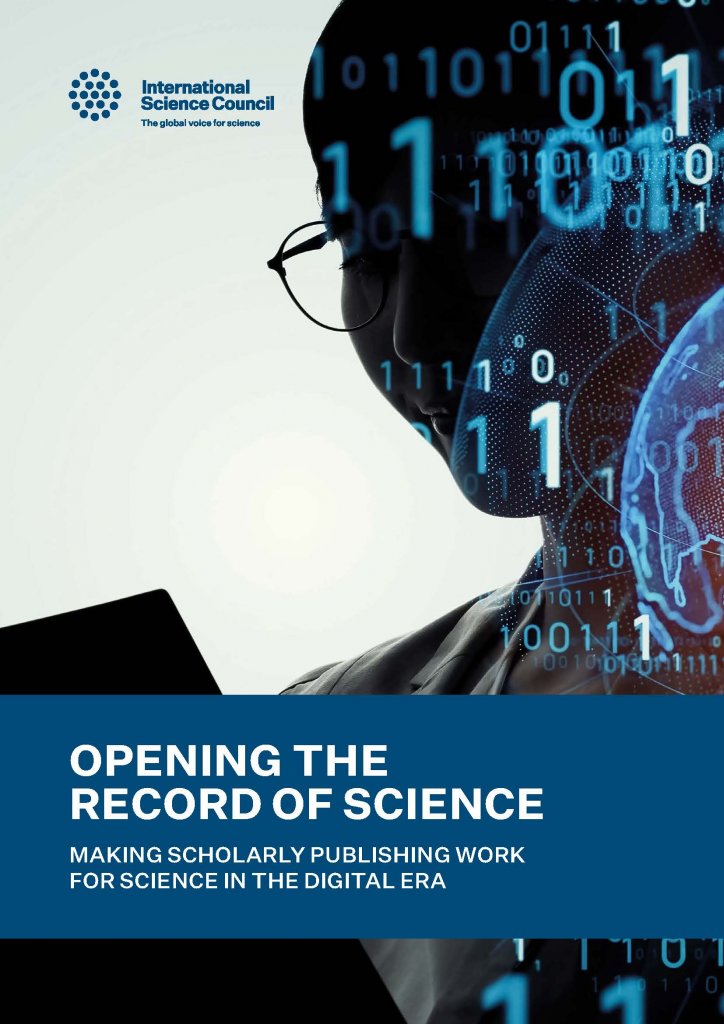
Exlore the summaries in the following languages:
The record of published science is a vital source of ideas, observations, evidence and data that provide fuel and inspiration for further enquiry, and is a profound part of the edifice of human knowledge.
That record, including the back catalogues of publishers, should be regarded as a global public good, openly and perennially free to read by citizens, researchers and all societal stakeholders.
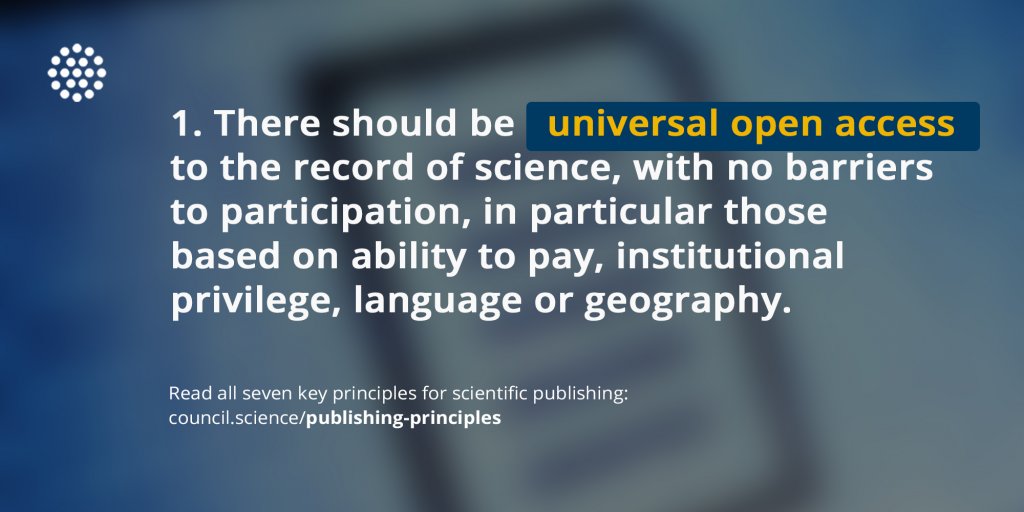
The progress of science depends on the ability to access and interrogate evidence and conclusions from past work. Open licences help to promote accountability and traceability, permit authors to continue to derive benefit from their work and maximize the extent to which the work can be built on by others. Yet when submitting to journals, authors may be required to transfer copyright to publishers.
As new technologies enhance the capacity to interrogate the whole record of science to discover new knowledge, pathways to access the resources that could facilitate such discovery should be open to all, unrestricted by licensing or ability to pay.
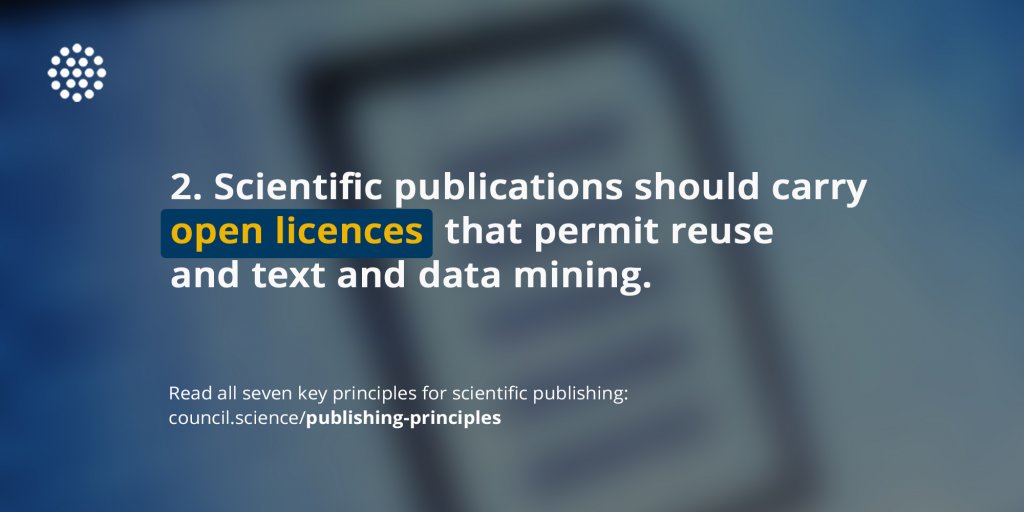
The growth in publication numbers and diversification of their formats and the need for rapid review at times of crisis has increased demands on reviewers, who receive no tangible reward for their work.
It is important that we rethink peer review processes, which are essential parts of the curation process in subjecting an author’s scholarly work, research or ideas to the scrutiny of independent experts in the same field.
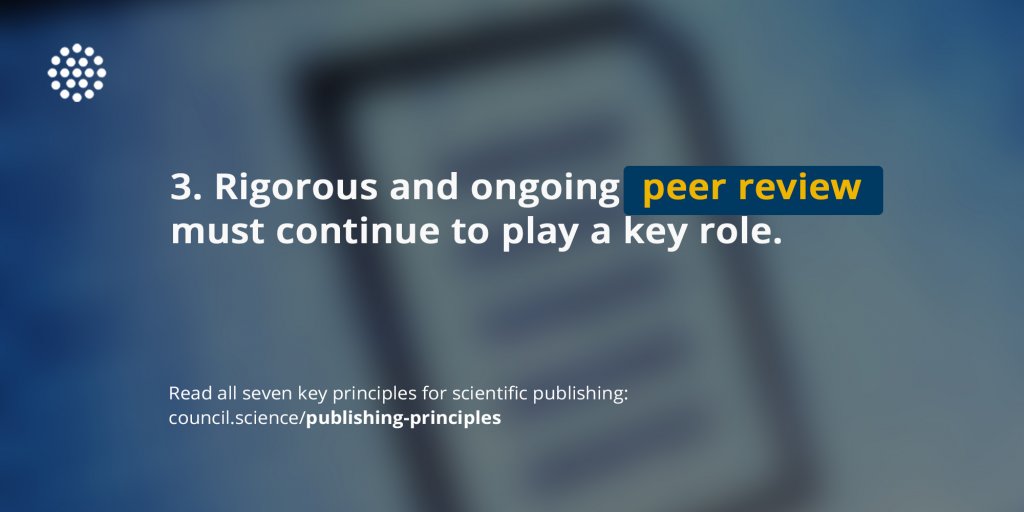
Data and observations supported by the metadata must be available for scrutiny when a concept for which they provide evidence is published. These processes are vital in enabling others to test the logic and attempt to replicate the experiment or observation.
This principle is essential to maintenance of the process of scientific self-correction. Adherence to it would do much to resolve the epidemic of non-reproducibility that has characterized the last decade.
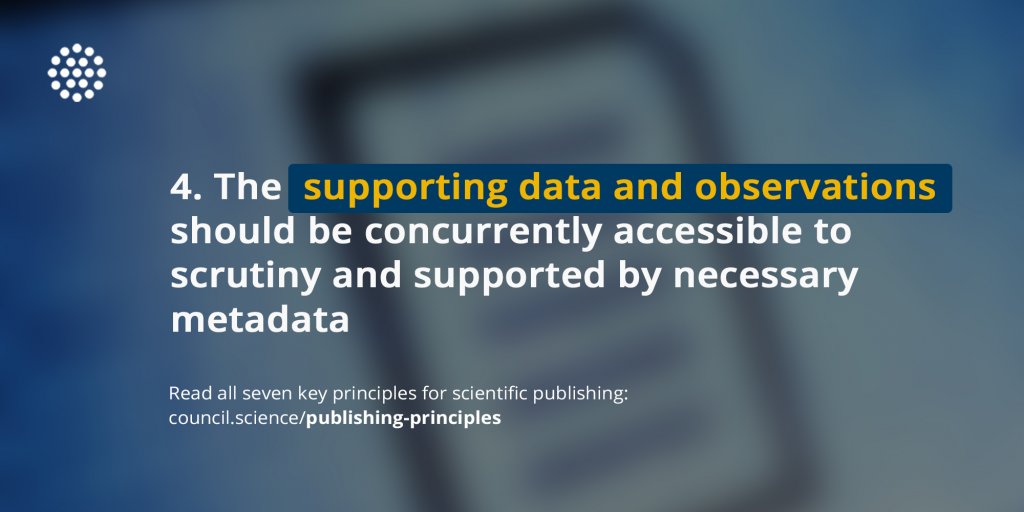
The record of science is an essential part of the inheritance of humanity, and should be maintained in such a way as to ensure access by future generations. As most libraries no longer hold large physical collections but rather manage access to many online resources, there is a danger that access to those digital resources could be lost.
There is a strong case for a coordinated network of digital libraries dedicated to the preservation of the scientific record, without a sunset clause, and governed by the scientific community and its institutions and not by commercial entities.
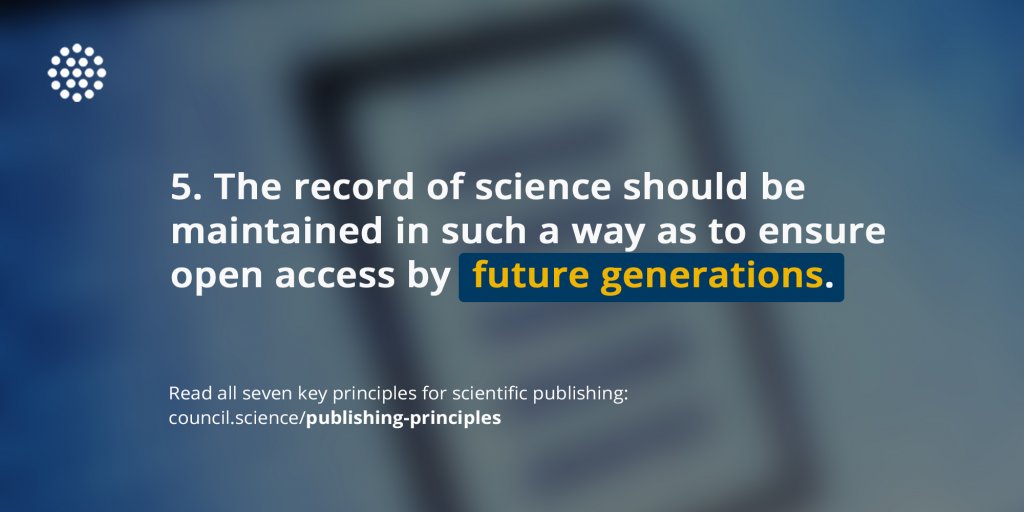
Although it is clear that no one size fits all, it is important that all are able to agree that contributing to the global public good is a shared purpose and that the processes of publication should avoid creating siloes between disciplines.
It would be impractical to insist on common standards for publication across the disciplines of science, but it is important that journals are explicit about their standards and that they adhere to them.
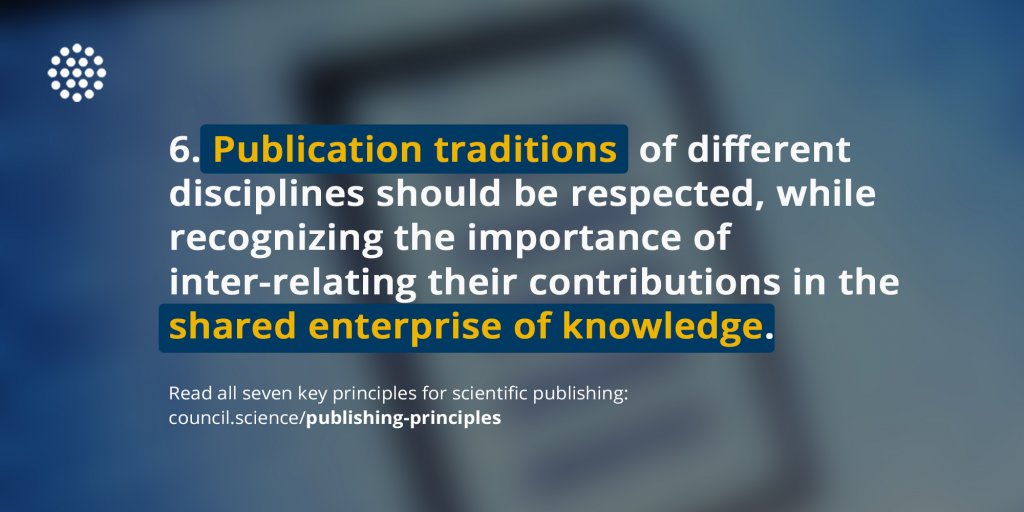
The digital revolution has created new opportunities to enhance the discovery and dissemination of new knowledge in more effective and efficient ways, and new challenges that need to be overcome.
The science publication system must be able to continually adapt to and exploit new opportunities that satisfy the principles set out here, and to avoid new threats to its integrity, rather than being inflexible and unresponsive.
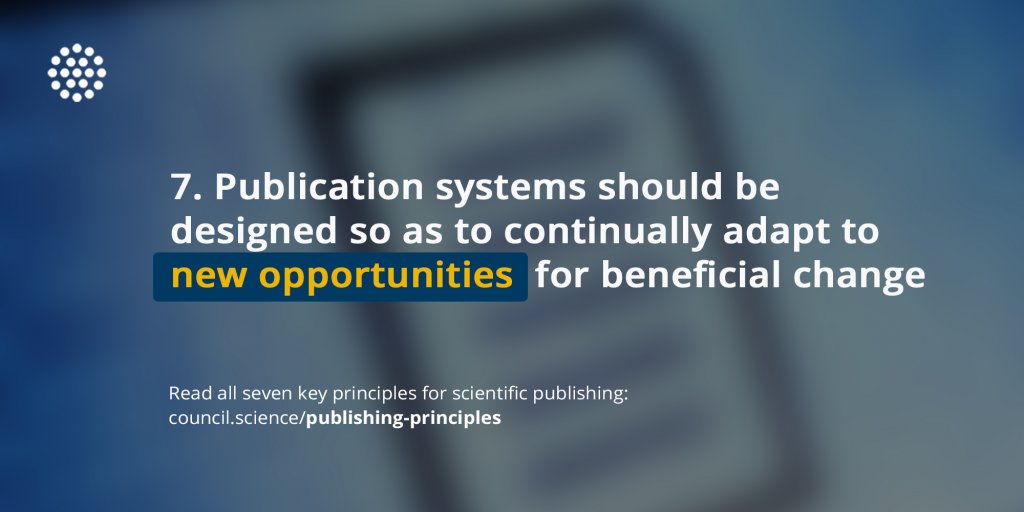
Read all seven principles in more detail in Chapter 2: “Principles for scientific publishing” or access the full publication below.